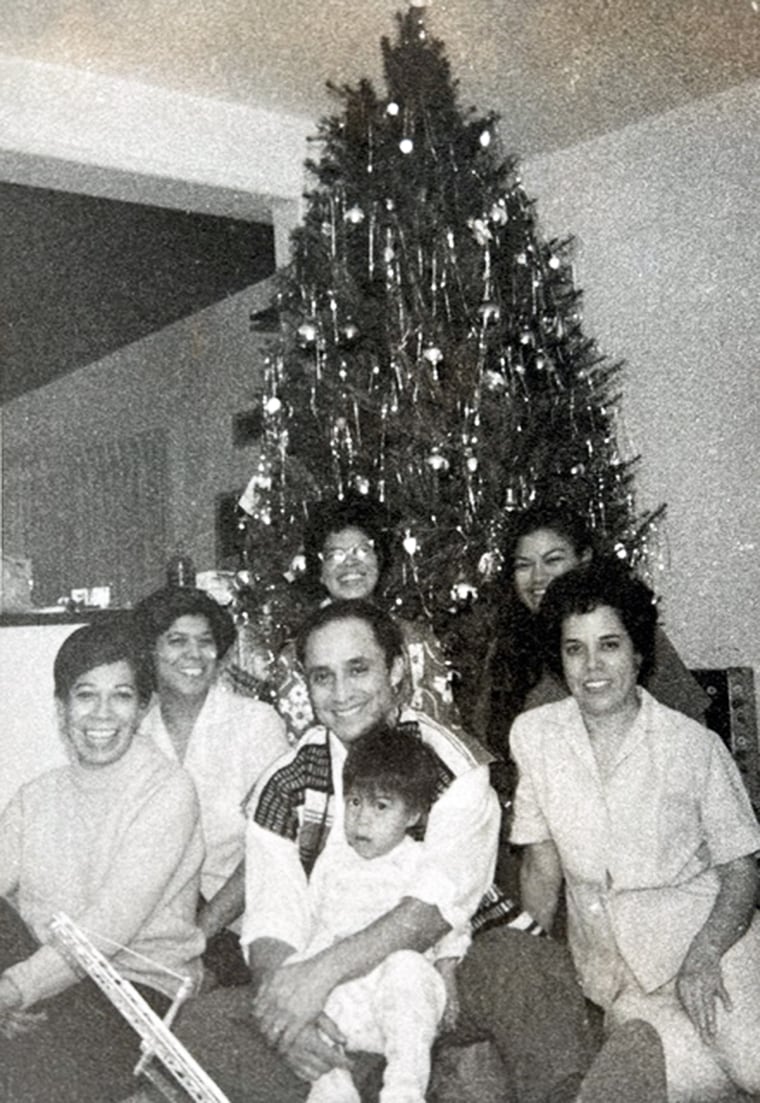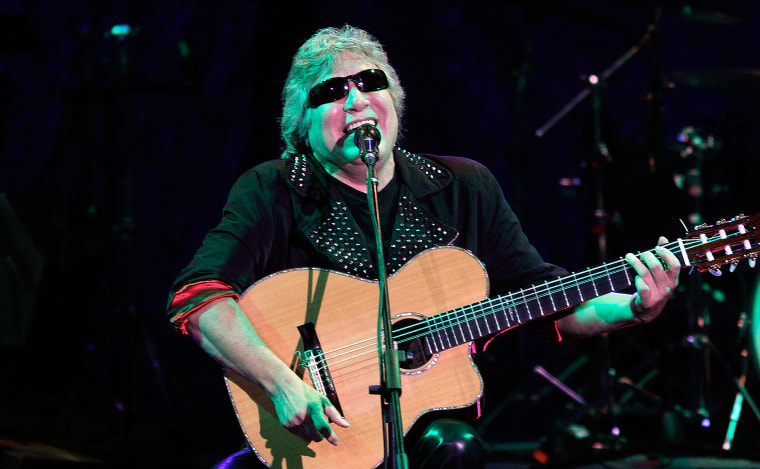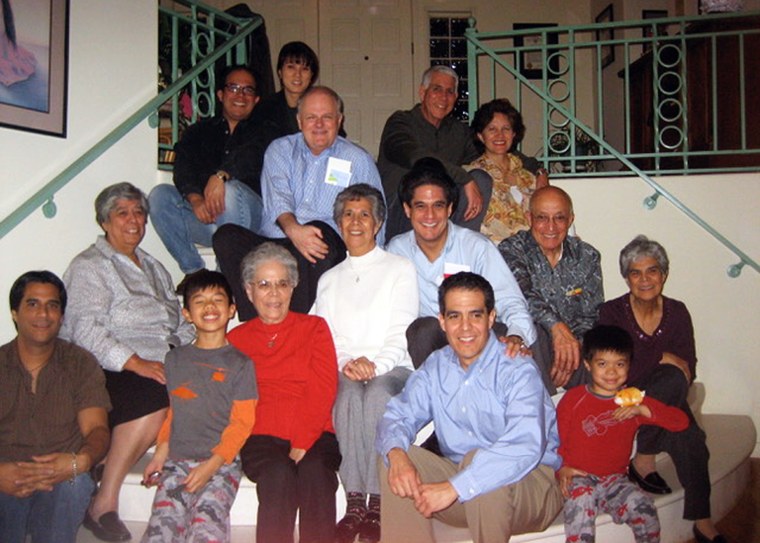I stared out the car window as my mom drove our Dodge Dart through the desert night. I was 10 years old, and my family was on a trip from Los Angeles to El Paso, Texas, to visit my grandpa for the holidays. Beside my mom, Aunt Emma was asleep in the front seat, and so were my brothers next to me in the back. Then the AM radio crackled. “Feliz Navidad,” a man sang. “I wanna wish you a merry Christmas, from the bottom of my heart!”
My mother hummed along with the melody. That song seemed like a beacon, the sound of people like us coming over the airwaves. We were in an old car on a dark road in the middle of nowhere. But with my family so close, and “Feliz Navidad” on the radio, it felt like the safest place in the world.
As a kid in the 1970s, I assumed that the voice behind “Feliz Navidad” was Mexican American like me. In fact, singer José Feliciano was born in 1945 in Puerto Rico. He wrote “Feliz Navidad” in 10 minutes and recorded it in one take, he once told The New Yorker. The novelty song that has become a holiday staple was released in 1970, when Richard Nixon was president, the Vietnam War was raging, and Hispanic Heritage Month didn’t exist yet.

For Feliciano, “Feliz Navidad” represented a comeback. After coming to prominence with his rendition of “Light My Fire” in 1968, he performed an unconventional version of the national anthem at the World Series. This generated a backlash that nearly derailed his career. Luckily, two years later Feliciano charmed his way back into the public eye with “Feliz Navidad.”
Although I grew up in an assimilated household, where my family spoke English at home, it was still special to hear Feliciano’s bilingual song every year. Before Latinos were a regular presence on TV and radio, we would hear him and feel like, in a sense, he was us.
I was in sixth grade the year that my older brother got a movie camera for Christmas. His present sparked a performance in our living room by my Aunt Lela, the free spirit of the family. Wearing a cape fashioned from wrapping paper, she belted out her own version of “Feliz Navidad.”
“This is my first live Christmas special!” she exclaimed. My cousins and I clapped along as the adults rolled their eyes. “Feliz Navidad” was perfect for my aunt — and for everyone — because anybody can sing it.
The genius of “Feliz Navidad” is its simplicity. It has only 19 words, 13 in English and six in Spanish. (The English: I wanna wish you a merry Christmas/ From the bottom of my heart. The Spanish: Feliz Navidad/ Próspero año y felicidad. Translated, it means merry Christmas and happy new year.) Feliciano repeats them for three minutes, long enough to craft a bouncy earworm. If you listen closely, you can hear the strings of the cuatro, an instrument derived from the guitar that often accompanies Christmas carols in Puerto Rico.
Like “All I Want for Christmas Is You” by Mariah Carey, “Feliz Navidad” has become one of the best-known holiday songs of all time. It has been covered by artists including Luciano Pavarotti, Celine Dion and Latin superstar Thalia. For many Latinos, it is not officially the Christmas season until we’ve heard this song.

Ironically, Feliciano has stated in interviews that this song was born of loneliness. He was in an L.A. studio over the holidays, missing his family, when he wrote and recorded it.
I learned what it was like to feel melancholy at Christmas in 2020, during the pandemic. Instead of spending the holidays in California with my family, I stayed home in New York City. I took solo walks in Central Park and stared out the window a lot. One day, I was so lonely that I went and sat at the bus stop even though I wasn’t even waiting for a bus.
In the evenings, when I listened to streaming radio, there was “Feliz Navidad.” It was only then that I detected a yearning in Feliciano’s voice. That year, the song struck me as bittersweet; it made me miss my relatives more, while simultaneously reminding me of happier times.

It’s now been over five decades since Feliciano released “Feliz Navidad.” Yet he will always be the original crossover artist who brought Latin sounds into the mainstream, and his most famous song remains the only Spanish-language Christmas classic in the U.S.